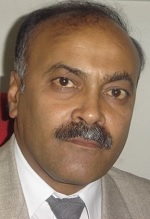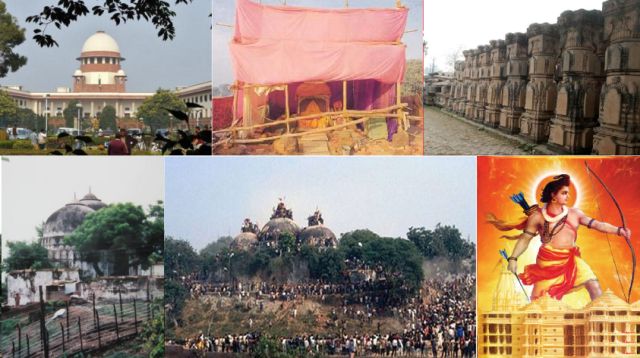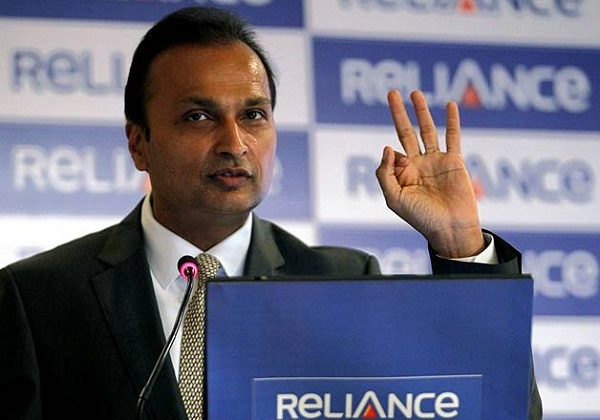
by admin | May 25, 2021 | Opinions

Advocate Shamim Ahsan
By Advocate S Shamim Ahsan | Thane
The role of Judiciary as watchdog of democracy and guardian of Constitution has been a constitutional imperative and the Judiciary had maintained it’s dignity and temper by questioning the Governments for making the Regimes responsible, responsive and accountable. The dignity and honour of Supreme Court has never been questionable and it had commanded the respect for the discharge of it’s primary duty as guardian.
In an unflattering exercise of contempt jurisdiction, the Supreme Court held Prashant Bhushan guilty of making “scandalous” and “Scurrilous” comments against the institution of Supreme Court.This very exercise of contempt jurisdiction of Supreme was termed as “over reaction” by many. Former Attorney General Soli Sorabjee even has gone to the extent of saying that “you are not some divine institution against whom we cannot speak”. In the opinion of Soli Sorabjee Supreme Court has conveyed a message that “no one can speak against us”.
Integrity of an institution is determined by the criticism it can withstand. Open criticism and fair comments are to be necessarily addressed for upholding the majesty and honour of the Institution failing which the constitutional order cannot be safeguarded. Supreme Court unfortunately rejected the very idea that people may have different belief and even the belief that does not suit to it’s preferences. It did not consider that people cannot be punished for having the other or different belief. They cannot be restrained from having an independent view.
While referring the contempt case of Prashant Bhushan, the history shall certainly remind us of the press conference by four senior Supreme Court Judges who were concerned about the Democracy being in danger. Their Lordships were critical of the functioning of Supreme Court. The crisis in Judiciary and perceived integrity of the institution was the base for Justice Chelameswar saying that they should not be remembered with the words that “they sold their souls”.
It was an unprecedented event in the history of the Nation when Judges themselves questioned the very base of administration of justice. Whether Supreme Court will address the questions and allegations by it’s own judges while punishing Prashant Bhushan for his act of dissent or personal opinion regarding former Judges.
The Contempt Case of Prashant Bhushan also leads us the question as to whether concerns expressed by four senior most Judges with regard to the manner and functioning of Supreme Court were perceived as Criticism or exercise of right of free speech and expression of dissent ??
One more and crucial aspect of the matter is the factor of deterrence that has been seemingly conveyed that “you cannot question”. There are many questions that are required to be answered concerning insensibilities of Top Court in very important and urgent issues including migrant workers’ petition and hate speech etc. Now the contempt jurisdiction of the institution shall silence all the voices that demand accountability or answers.
Prashat Bhushan’s conviction affects the very credibility of Judicial system. It also puts a question mark over the procedure adopted for conviction apart from the argument that whether the power of Supreme Court for contempt proceedings is inherent or absolute. Faith of the people stands eroded with the judgment as opined by Arun Shourie.
By refusing to apologize, Prashant Bhushan has upheld the dignity of the profession and has set a precedent against arrogance that the principles remain unchanged and the same cannot be compromised. He did not fail in his duties in maintaining his dignity as officer of the Court and in protecting the majesty and honour of the Institution of Judiciary.
Despite unfavorable circumstances against fair Criticism, democratic comments and Dissent, many, including Lawyers, former Judges of Supreme Court and people from various fields of Society have shown their disagreement and disapproval with the Judicial arrogance having been exhibited against Prashant Bhushan..
The solidarity with Prashant Bhushan conveys that deterrence as intended by Supreme Court has been rendered ineffective. Let’s stand for the cause and for Prashant Bhushan so that the Institution of Judiciary too can be questioned for accountability….

by admin | May 25, 2021 | News
 New Delhi : The Supreme Court on Friday asked what action has been taken against the owner of the illegal coal mine located in East Jaintia Hills district in Meghalaya in which 15 miners are trapped since December 13.
New Delhi : The Supreme Court on Friday asked what action has been taken against the owner of the illegal coal mine located in East Jaintia Hills district in Meghalaya in which 15 miners are trapped since December 13.
“What you have done against the person who was indulging in illegal mining? What about the officials who were conniving in the illegal mining,” asked Justice A.K. Sikri as senior counsel Anand Grover told the court that a number of agencies, both governmental and private, are offering assistance in rescue operations but there is no coordinating authority to take decisions.
Other judge on the bench is Justice S. Abdul Nazeer.
The court said that it would deal with the aspect of illegal mining later as Solicitor General Tushar Mehta said that the entire operation of illegal mining could not have been without connivance of officials.
Grover, appearing for PIL petitioner Aditya N. Prasad, told the court that due to lack of coordination and also some hurdles being faced by the teams engaged in rescue operations and working on the site, the desired results are not there.
He said that the Hyderabad-based National Geophysical Research Institute (NGRI), Roorkee-based National Institute of Hydrology (NIH) and some other private research institutions including Chennai’s Planys Technology need to be associated in the rescue operations.
The court was also told that the Indian Air Force help is needed to lift heavy equipment to the spot hit by tragedy.
Solicitor General Mehta told the court that despite their best efforts with the high-power pumps of Kirloskars, Coal India Ltd and that of the Meghalaya government pumping out the water, the water level has gone down by just eight inches as more and more water is coming from adjoining Lytein river.
Mehta said all the agencies named by petitioner Prasad have already been contacted by the government and everything possible is being done to augment the rescue operations.
The court was told that the operations is facing difficulty as water in the mine is muddy.
As the Solicitor General projected the difficulties in pumping out the water, the court wondered how the owner of the mine was handling the problem of pumping out the water.
The court listed the matter for January 18 for further hearing.
—IANS

by admin | May 25, 2021 | News, Politics
 Lucknow : The Babri Masjid Action Committee (BMAC) has decided to file a petition in the Supreme Court in case the Narendra Modi-led NDA government at the Centre brings in an ordinance paving way for the construction of a grand Ram temple at the disputed site in Ayodhya, an office-bearer said on Wednesday.
Lucknow : The Babri Masjid Action Committee (BMAC) has decided to file a petition in the Supreme Court in case the Narendra Modi-led NDA government at the Centre brings in an ordinance paving way for the construction of a grand Ram temple at the disputed site in Ayodhya, an office-bearer said on Wednesday.
He said the BMAC took the decision at a meeting on Tuesday.
The move comes ahead of the January 4 hearing by the apex court on the matter.
While right-wing groups and the Rashtriya Swayamsewak Sangh (RSS) have been pressing for the ordinance, the opposition has been seeking a court verdict on the contentious issue.
One of the 70 persons, who attended the meeting, said it was a routine one and had no specific agenda. Though the possibility of the Modi government bringing in an ordinance or a legislation on the temple issue was discussed.
Convenor of the BMAC Zafaryab Jilani said the committee would also urge the Supreme Court to not rush through the matter and pronounce a verdict only after going through all aspects and studying all relevant papers and documents.
The BMAC members were also of the view that the Bharatiya Janata Party’s (BJP) electoral defeats in three states, the whipping up of passion on the temple issue and the pro-temple statements by senior BJP leaders, including Uttar Pradesh Chief Minister Yogi Adityanath, could not be taken in isolation or lightly.
—IANS

by admin | May 25, 2021 | Corporate, Corporate Buzz

Anil Ambani
New Delhi : Reliance Group Chairman Anil Ambani on Friday welcomed the Supreme Court judgment in the Rafale deal, saying it has conclusively established “complete falsity of the wild, baseless and politically motivated” allegations levelled against Reliance Group and him personally.
In a statement, he said the Reliance Group was committed to India’s national security and to making its contribution towards the Make in India and Skill India policies of the government in defence, including the offset partnership agreement with valued partner Dassault Aviation.
“I welcome the judgment of the Hon’ble Supreme Court today summarily dismissing all PILs filed on the Rafale contracts, and conclusively establishing the complete falsity of the wild, baseless and politically motivated allegations levelled against Reliance Group and me personally.
“We remain committed to India’s national security and to making our humble contribution towards the Make in India and Skill India policies of the Government in the critical area of defence including our offset partnership agreement with our valued partner, Dassault Aviation of France,” Ambani said.
The Supreme Court on Friday dismissed four petitions seeking court-monitored probe into the purchase of 36 Rafale jet fighters in ready-to-fly conditions, holding that the decision making process was not in doubt and it cannot go into the question of pricing and choice of offset Indian partner by the French aircraft manufacturer Dassault.
Referring to their interaction with senior air force officers and the material placed before it, a bench of Chief Justice Ranjan Gogoi, Justice Sanjay Krishan Kaul and Justice K.M. Joseph, said: “We are satisfied there is no occasion to doubt the decision-making process.”
—IANS

by admin | May 25, 2021 | Investing, News, Pensions & Sipps
 New Delhi : The Supreme Court on Thursday said that senior citizens should get a meaningful pension to live with dignity, and not just the equivalent of Rs 92 at current value.
New Delhi : The Supreme Court on Thursday said that senior citizens should get a meaningful pension to live with dignity, and not just the equivalent of Rs 92 at current value.
The apex court said the State was “obligated to ensure” that the right to live with dignity that includes reasonable shelter, health care, clothing and meaningful pension for elderly people without any means was “not only protected but are enforced and made available to all citizens”.
Noting that in real terms the value of Rs 200 being given as pension to elderly people since 2007 today stands at about Rs 92, the bench of Justice Madan B. Lokur and Justice Deepak Gupta in their judgement said the provision for basic necessities which includes, nutrition, clothing and shelter can be made only if the elderly are provided with some pension which is meaningful and not pension which is equivalent to Rs 92 per month.
If the current value of the rupee is taken into consideration, the amount of Rs 200 in real terms actually works out to about 92 per month on the lower scale.
The court directed the Centre and states to revisit the grant of pension to the elderly so that it is more “realistic”.
It said the schemes which are “comparatively dated” should be re-looked and overhauled to bring about convergence and avoid multiplicity.
The court said this as it issued a number of directions for the enforcement of pension for the elderly, shelter, geriatric care and medical facilities and the effective implementation of the Maintenance and Welfare of Parents and Senior Citizens Act, 2007.
Addressing the question of the limited capacity of the State in meeting the expenses of the welfare measures for the elderly people, the court said: “The consideration of ‘economic budgeting’ by the Centre and states must have been taken into account while enacting the legislation.”
Speaking for the bench, Justice Lokur said “there cannot be any excuse of lack of finances” either by the Central or state governments in “strictly implementing the provisions of the Maintenance and Welfare of Parents and Senior Citizens Act, 2007”.
In short, the court said, if not the constitutional then at least the statutory rights of elderly persons must be recognised and implemented.
The court also directed that the Central government should obtain necessary information from all states and union territories on the number of old age homes in each district.
The Central government, the court said, would also obtain information on the medical facilities and geriatric care facilities that are available to senior citizens in each district.
Referring to the provisions of the MWP Act, the court directed the Centre to exercise its power and issue appropriate directions to the States for the effective implementation of the provisions of the MWP Act and monitor its execution.
As the court has decided to monitor the implementation of its directions, the Centre was directed to file a status report by January 31, 2019.
—IANS






